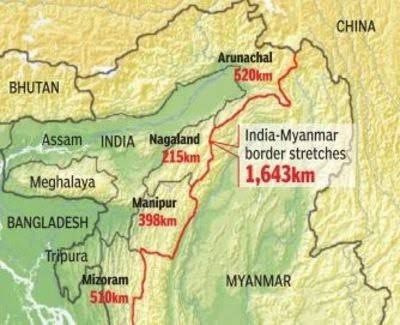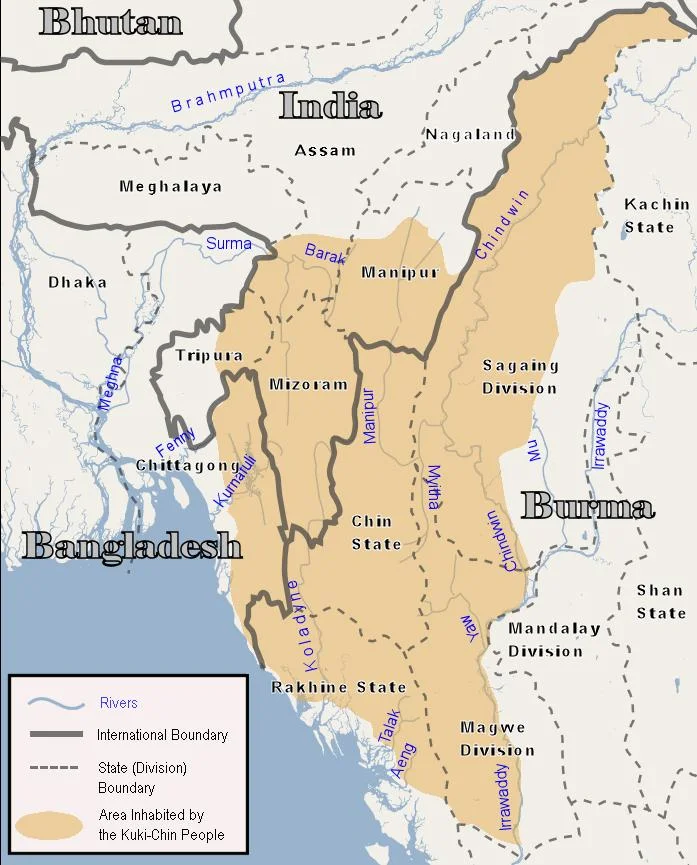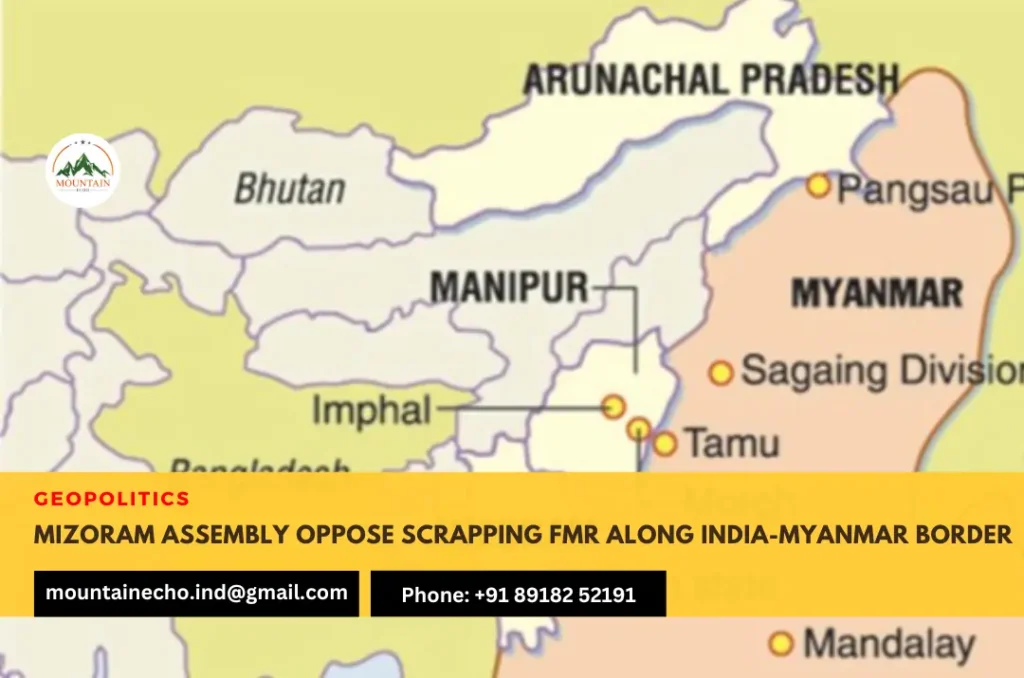Mizoram Assembly pass resolution to oppose scrapping of FMR and border fencing along India-Myanmar
WhatsApp Channel
Join Now
The Mizoram Assembly recently adopted a resolution against the Government of India’s decision to scrap the Free Movement Regime (FMR) along Indo-Myanmar border and announced to fence the borders with the neighbouring country.
The FMR allows people living on both sides of the border to travel 16 km into each other’s territory without a visa.
Four states in the Northeast — Mizoram, Manipur, Nagaland and Arunachal Pradesh — share a 1,643-km-long international border with Myanmar. The border that begins from Anjaw in Arunachal Pradesh ends at Lawngtlai in Mizoram.

Mizoram shares a 510-km-long border with Myanmar’s Chin state and the Kuki-Mizos share ethnic ties with the Chin people.
Chief Minister Mr. Lalduhoma of the Zoram People’s Movement is opposed to fencing the borders as it feels it will further divide the Zo group of people already separated by the inter-State and international boundaries. Zo is a collective term used for the Chin people of Myanmar, Mizos of Mizoram, and Kukis tries inhabiting in parts of Northeast states in Manipur, Tripura, and Assam.
 “Mizos living in different parts of the world dream of reunification”, and fencing the present border will amount to approval of the boundary “imposed” by the British, the Mizoram Chief Minister was quoted by PTI.
“Mizos living in different parts of the world dream of reunification”, and fencing the present border will amount to approval of the boundary “imposed” by the British, the Mizoram Chief Minister was quoted by PTI.
Home Minister K Sapdanga moving the resolution in the Mizoram Assembly, said “The Zo ethnic people can’t accept the India-Myanmar border, which has been imposed on them by the British. They have been dreaming of reunification under one administrative unit someday.”
The Mizo people of Mizoram share strong cultural and ethnic links with the Chin people living across the border in Myanmar. The FMR allows for easy movement and interaction between these communities, which is seen as crucial for maintaining their cultural identity.
The tribe believe that the British colonial era divided the Mizo and Chin communities by drawing an artificial border and the FMR is seen as a way to bridge this divide and uphold the historical unity of the Zo people.
Also, people living in the border regions on both sides rely on the FMR for trade, business activities, and accessing essential services. Fencing the border and scrapping the FMR could disrupt their livelihoods.
The Chief Minister Lalduhoma, during the discussion in the Mizoram Assembly, had acknowledged the problems of security and cross-border trafficking and believes that the smuggling of drugs and other contraband has increased due to the FMR. However, the Government of Mizoram believes that other measures can be implemented to address security concerns without disrupting cross-border movement. Mizoram Assembly proposes strengthening border patrolling and implementing stricter visa regimes instead of resorting to fencing and scrapping the FMR entirely.
Telegram Channel
Join Now



